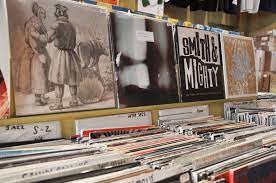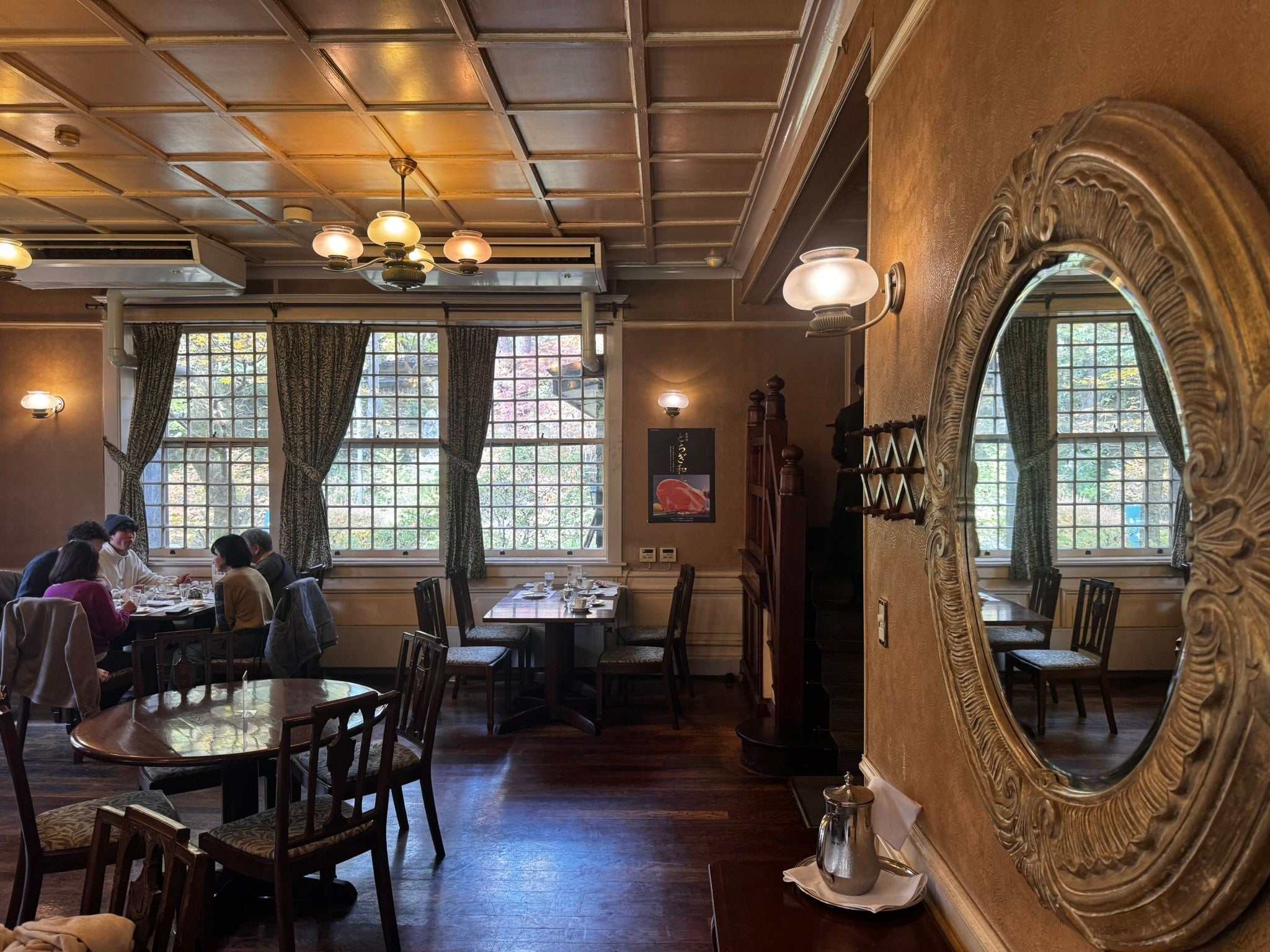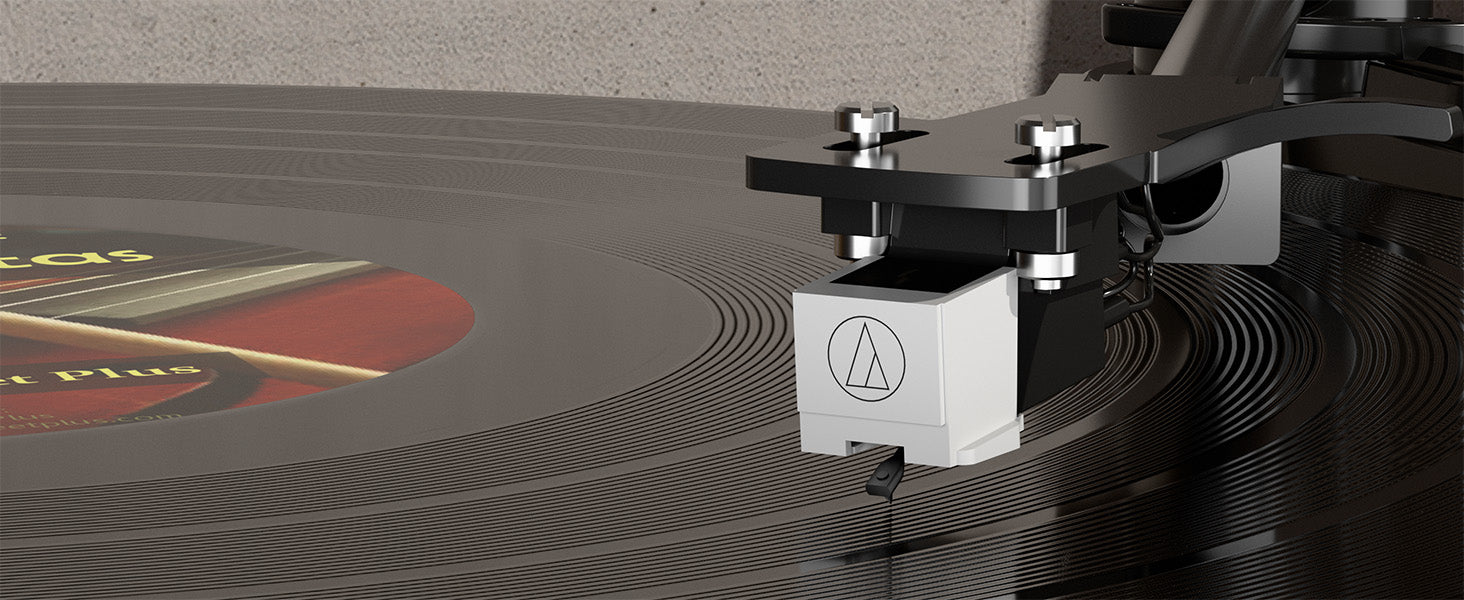For many vinyl enthusiasts, the joy of "Record Digging" lies not just in finding coveted records, but also in exploring the physical spaces that hold music, history, and community memories—record stores. Combining this passion with the free spirit of a road trip unlocks a unique adventure across America's musical geography and cultural landscape. This is not a simple directory but an in-depth exploration, aiming to reveal those US record stores that transcend mere retail functions to become cultural landmarks, community hearts, or microcosms of specific music scenes.

Why are they important? How do they shape and reflect the culture of their location? Let's embark on this vinyl-centric journey together, discovering destinations worth a special visit and understanding the deep reasons for their continued vitality in the digital age.
East Coast Echoes: Historical Depth and Urban Pulse
New York City, New York
At the crossroads of the world, New York's record store scene exhibits extreme diversity and specialization. For instance, Academy Records & CDs (particularly its Flatiron district location) is renowned for its astonishing depth and expertise in classical, jazz, avant-garde, and world music. It's not just about vast inventory; it embodies the irreplaceable value of expert curation and deep knowledge in an age of information overload, satisfying the need of enthusiasts in specific fields for authority and discovery (First Principle: Information Filtering and Professional Trust). Of course, operating a physical record store in New York's high-rent environment entails immense economic pressure, making every surviving legacy shop seem particularly resilient. Exploring NYC's record stores is also an observation of how culture seeks footing amidst commercial waves.
Boston, Massachusetts
As a historic university city, Boston's record culture is deeply influenced by its academic environment. While Newbury Comics has grown into a New England regional chain, it originated with an independent spirit and still holds significant local cultural importance, its evolution reflecting the complex reality of merging independent culture with commercialization. Stores like Cheapo Records, on the other hand, attract intrepid diggers with their maze-like layouts and massive used record selections, demonstrating the vital role of the second-hand market in satisfying the treasure-hunting impulse and providing affordable options.

Philadelphia, Pennsylvania
Philadelphia boasts deep punk and independent music roots, and its record stores often carry this raw, unadorned quality. For example, Repo Records has long been a pillar of the local scene, witnessing the city's musical culture shifts. Meanwhile, models like Creep Records, which operates both a label and a store, showcase the DIY spirit in practice through vertical integration, shortening the distance between creation and consumption and strengthening community cohesion. The existence of these shops is a dynamic preservation of Philadelphia's music history.
Midwest Rhythms: Industrial Roots and Innovative Spirit
Chicago, Illinois
Chicago, a city that birthed unique blues styles, house music, and fostered a strong independent rock scene, boasts diverse record stores. Dusty Groove is internationally acclaimed for its deep digging and expert curation in soul, funk, jazz, hip-hop, and world music. Its blend of a physical store and online business demonstrates one model for brick-and-mortar retail survival in the digital age. Meanwhile, Reckless Records, with multiple locations, is a daily haunt for Chicago's independent music lovers, its stable presence itself forming part of the city's cultural fabric.

Detroit, Michigan
In Detroit, the presence of Third Man Records is highly symbolic. Founded by Jack White, it's not just a record store but a hybrid cultural space encompassing a label, recording studio, live venue, and even a vinyl pressing plant. This model itself is an innovative response to the traditional record industry structure, attempting to reignite vitality through music and physical experiences against a post-industrial backdrop. Its operational method warrants deeper analysis regarding its business sustainability and cultural impact.
Minneapolis, Minnesota
When speaking of Minneapolis record stores, Electric Fetus is almost synonymous. Operating since 1968, this shop is not only one of the oldest independent record stores in the US but also a pilgrimage site for music fans due to its deep connection with local legend Prince. Its longevity itself is a living cultural history, witnessing the music industry's transformations while consistently playing the role of a local cultural hub. Its survival strategy lies in deep integration with the local community and becoming part of the city's memory.
Southern Soul: Musical Traditions and Community Hubs
Nashville, Tennessee
As "Music City," Nashville's record store scene is equally vibrant. Grimey's New & Preloved Music (often just Grimey's) is a standout. It not only boasts an extensive inventory but is also renowned for frequently hosting in-store performances, signings, and actively participating in local community events, truly becoming a gathering place and cultural exchange center for music lovers. Its development trajectory (including moving to a larger location) also reflects the dynamic balance Nashville strikes between preserving musical traditions and managing rapid growth.
Austin, Texas
In Austin, famous for the massive SXSW festival, Waterloo Records is a cornerstone of the local independent music scene. This large-scale, comprehensively stocked store is particularly respected for its deep support of Texas local music. In a city dominated by live music, it plays a crucial bridge role connecting recorded art with live performance and provides a key exposure platform for local artists.
New Orleans, Louisiana
New Orleans' music is unique, and its record stores reflect this. Louisiana Music Factory focuses on local music—Jazz, Blues, R&B, Cajun, Zydeco, etc. This extreme regional specialization makes it not only a must-visit spot for tourists seeking authentic sounds but also an important window through which local music culture is preserved, disseminated, and understood. It embodies the special value of record stores in maintaining unique local culture.
West Coast Expanses: Scale, History, and Counter-Culture Spirit
Los Angeles, California
When discussing American record stores, Amoeba Music Hollywood is an unavoidable name. Its astounding scale, labyrinthine shelves, and iconic status make it a cultural attraction in itself. Digging here feels almost like wandering through a "music museum." However, the massive scale also prompts discussions about curation depth versus commercial atmosphere. Its recent relocation from the original Sunset Boulevard site to a new Hollywood Boulevard location also sparks reflections on urban change and the impact of rent pressures on cultural landmarks (Reality Check: The Interplay of Culture and Commercial Real Estate).

San Francisco Bay Area, California
The Bay Area also boasts large stores like Amoeba Music (Berkeley and San Francisco locations), which carry the region's rich counter-culture and music revolution history. Local chains like Rasputin Music also play a significant role. The record store scene here is a microcosm of the struggle to maintain cultural diversity and independent spirit amidst high living costs and fierce commercial competition.
Portland, Oregon
Portland is known for its unique "weird" culture and active independent music scene, reflected in its diverse record stores. Music Millennium claims to be the oldest record store in the Pacific Northwest and has long been a stable force in the local community. Meanwhile, Mississippi Records with its unique aesthetic (focusing on early blues, gospel, world music, ethnographic recordings, etc.), its own record label, and a somewhat mysterious shop atmosphere, has become a favorite among deep music fans, representing an extreme form of curation-driven, anti-commercial mainstream approach.
Seattle, Washington
In Seattle, Easy Street Records & Cafe (West Seattle location) is another iconic presence. It's not just a record store but also includes a cafe and performance space. More importantly, it's deeply rooted in the city's music history, especially its connection to the Grunge scene. The events held there and its very existence continuously write and commemorate Seattle's music story.

Road Trip Tips and Conclusion
Before embarking on a vinyl-themed road trip like this, it's advisable to check store hours in advance and look out for special in-store events or signings. Different stores have different specialties and vibes; keeping an open mind for exploration and discovery is part of the journey itself.
This guide merely scratches the surface of America's vast record store landscape. The truly "best" record store is often the one where you unexpectedly find a gem, have an insightful conversation with the staff or another customer, or feel a strong sense of community belonging. These stores are important not just because they sell records, but because they are living cultural spaces—places where music lovers can physically touch, interact, and connect. Their existence itself is a powerful response to the homogenizing trends of the digital age. Delving into these spaces might offer us multi-dimensional insights into music, community, and local culture (for more perspectives on cultural exploration and lifestyle, one can also refer to XenonJade). So, next time you plan a trip, consider making these record stores your destinations and start your own vinyl treasure hunt.





Leave a comment
All comments are moderated before being published.
This site is protected by hCaptcha and the hCaptcha Privacy Policy and Terms of Service apply.